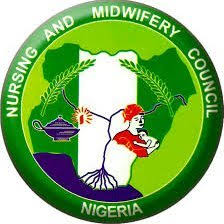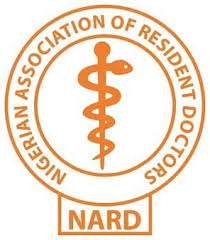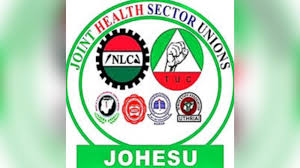COMMUNIQUE ISSUED AT THE END OF THE 34TH SCIENTIFIC CONFERENCE AND ANNUAL GENERAL MEETING OF THE ASSOCIATION OF PUBLIC HEALTH PHYSICIANS OF NIGERIA HELD AT ORCHID HOTELS ALONG DOS ROAD ASABA, DELTA STATE BETWEEN THE 5TH AND 9TH OF MARCH 2018
PREAMBLE
The 34th National Scientific Conference and Annual General Meeting (AGM) of the Association of Public Health Physicians of Nigeria held between the 5th and 9th of March 2018 in Asaba, Delta State. The theme of the conference was "Achieving Health- Related Sustainable Development Goals (SDGs) in Nigeria. The Way Forward". The conference was hosted by the Delta State Chapter of APHPN. Prior to the opening ceremony, there was a Pre-Conference Workshop at the Federal Medical Centre, Asaba, which addressed Occupational Health Services for Agricultural Workers and Standard Precautions in the Control of Infections in Hospital Settings.
The Executive Governor of Delta State. His Excellency Senator Dr. Ifeanyi Okowa. represented by the Honourable Commissioner for Health, Delta State, Dr Mordi Ononye, flagged off the occasion at the opening ceremony Other prominent dignitaries at the opening ceremony were Hon Tonye Timi, Vice Chairman House Committee on Health. Delta State House of Assembly, Dr Andy Illabor, Senior Special Assistant on SDGs to Delta State Government.
Professor Obehi Okojie from the University of Benin, Benin City. Edo State, delivered this years Annual Isaac Ladipo Oluwole Memorial Lecture which was titled 'Achieving Health-Related SDGs in Nigeria: The Way Forward". Other topics addressed at the plenary sessions of the scientific conference were Epidemiology of Viral Haemorrhagic Fevers. Case Study from Nigeria Centre for Disease Control (NCDC), Promoting Community Mental Health; Achieving Food Security and Improved Nutrition and presentation on the Second National Strategic Health Development Plan, Roundtable discussions were held on Health care Financing Options in a Fragile Economy; Strengthening Surveillance Systems and Emergency Preparedness for control of Epidemics.
The Scientific Conference also featured oral abstract and poster presentation. The AGN including the Strategic and Caucus Meetings were held on the final day of the conference.
.jpg) OBSERVATIONS
OBSERVATIONS 1. Nigeria did not make significant progress in achieving the Millennium Development Goals (MDGs). However, the government has made effort in preparation for the achievement of the SGDs some of which are strengthening national awareness, political commitment and ownership of the SGDs by integrating it into her long-term development plan.
2. There is palpable poor involvement of the private sector in financing SDGs in Nigeria which increases the financial burden on the government, thus stagnating the achievements of SDGs.
3. The Goal 3 of the SDGs cannot be met without effective Universal Health Coverage (UHC) including effective, vibrant and mandatory social health insurance scheme.
4. Local Governments are pivotal to the achievement of the SDGs because it is the only tier of government that can feasibly understand, monitor and react to the millions of activities that will collectively add up to the SDGs.
5. Important drivers of epidemics globally especially in developing countries include corruption, insurgency and insecurity
6. In Nigeria, there is poor emergency preparedness, leading to "reactive response" to outbreaks with attendant high mortality among contacts of infected persons with Viral Haemorrhagic Fevers (VHFs)
7. There is poor knowledge of case definitions of VHFs especially among primary and secondary health care workers leading to poor index of suspicion, late diagnosis and hospital acquired infections.
8. There is poor political will for Lassa fever management in Nigeria Since the 2012 meeting of National Lassa fever control committee; the Federal Ministry of Health is yet to implement the recommendations by the committee.
9. The Lassa fever Diagnostic and Treatment Centre in Irrua is currently overwhelmed because of the current epidemic of Lassa fever.
10. Health Care workers especially at the Primary Health Care level have difficulty in recognizing cases of mental health disorders probably due to lack of diagnostic capacity, leading to inadequate identification, management and reporting of mental health disorder.
RECOMMENDATION
i. Nigeria has taken a right step in endorsing the SGDs as benchmark for economic growth and development. Its goals should form part of routine developmental agenda of the country.
ii Accelerating progress towards Universal Health Care Coverage can be achieved through; strengthening Primary Health Care; ensuring financial risk protection; and redressing inequities in access to health information and services.
iii. There is need for public private partnership in financing SDGs as the government cannot do it alone. This will reduce the financial burden on government and give the private sector an opportunity to contribute to achieving the SDGs in the country.
iv. The enrolment into social health insurance schemes should be compulsory for every Nigerian. Thus, there is need for the amendment of the relevant sections in the NHIS Act.
V. Local Government Areas should be repositioned solely around the SDGs because all their activities contribute directly to the SDGs
vi. Government at all levels should put a high premium on accountability and transparency as this is the only way corruption can be addressed.
vii. The Federal Government needs to ensure the security of everyone regardless of where they live and work in Nigeria.
viii. The Federal Ministry of Health should implement the recommendations of the National Lassa Fever Committee and facilitate the TOT workshops on the control of Lassa fever.
ix. The Federal Government should replicate Lassa Fever Diagnostic and Treatment Centres in all six geo-political zones for wider access to care.
x. Partnerships should be established between APHPN and NPHCDA, NCDC and Departments of Community Medicine in tertiary in Nigeria for all control of VHFs.
xi. Every health facility should as a matter of urgency, establish a functional emergency preparedness unit for VHF and other emerging infectious diseases with displayed infection prevention and control protocols.
xii. The Federal Government should establish NCDC in each of the 6 Geo-political zones in the country for effective disease control.
xiii. There is need for the Federal Ministry of Health and the NCDC to conduct further research to determine the presence or absence of carrier states for Lassa fever and the efficacy of Repairing, in the treatment of Lassa fever.
xiv. The mental health Gap Action Program (mhGAP) of the World Health Organization should be integrated into the PHC system to address the gap between the need and availability of resources for mental health care.
Signed:
Prof BSC Uzochukwu
National Chairman, APHPN
Dr Nwachukwu Ugwunna
Secretary General, APHPN
ABUJA: Training Schedule for Basic Life Support BLS, Pediatric Advanced Life Support (PALS), Advanced Cardiovascular Life Support ACLS, First Aid, CPR, AED
PORTHARCOURT: Training Schedule for Basic Life Support BLS, Pediatric Advanced Life Support (PALS), Advanced Cardiovascular Life Support ACLS, First Aid, CPR, AED
LAGOS: Training Schedule for Basic Life Support BLS, Pediatric Advanced Life Support (PALS), Advanced Cardiovascular Life Support ACLS, First Aid, CPR, AED
STOP paying for airtime and electricity, Let your phone pay its bills with ScreenT




